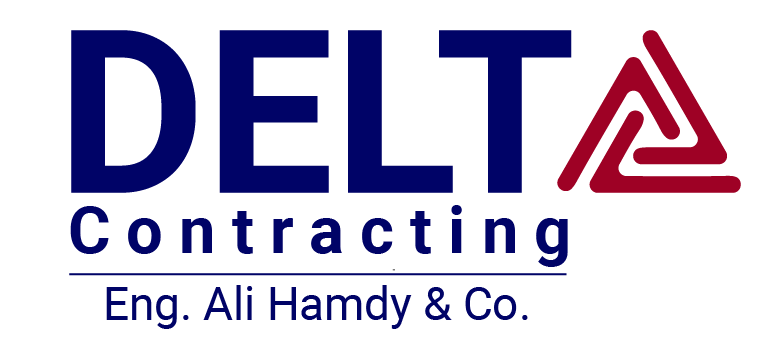
Close

Ain Sokhna Port, located on the western coast of the Gulf of Suez, is one of Egypt’s most important maritime gateways. Positioned just 43 km south of Suez, the port is strategically located to serve Egypt, the Arab Gulf states, and Asia. With a vast area of 22.3 km² and a draft reaching up to 18 meters, Ain Sokhna Port has rapidly evolved into a major industrial and logistical center, making it a cornerstone of Egypt’s trade and transport infrastructure.
Situated at the entrance of the Suez Canal Economic Zone (SCZone), Ain Sokhna Port plays a critical role in global trade routes connecting Europe, Africa, and Asia. Its location on the Gulf of Suez provides direct access to Red Sea shipping lanes, making it a natural hub for containerized and bulk cargo.
Initially developed to support industrial activities along the Red Sea coast, the port has grown into a full-scale logistics and trade hub. Over the years, it has expanded to accommodate growing cargo volumes, becoming a pivotal part of Egypt’s long-term economic vision.
The port spans 22.3 km², offering ample space for industrial zones, logistics parks, and future expansion projects. With its 18-meter draft, Ain Sokhna can accommodate some of the world’s largest vessels, ensuring Egypt remains competitive in global shipping.
The port currently has multiple specialized terminals, including:
Container terminals for large-scale shipping.
General cargo terminals for bulk commodities.
Dry and liquid cargo terminals for petroleum and chemical products.
The port is designed with logistics centers and storage facilities, providing seamless cargo handling, storage, and redistribution services for local and international markets.
Egypt is heavily investing in Ain Sokhna Port’s future to transform it into a world-class maritime and logistics hub.
Plans are underway for four new docks and additional berths to handle increasing container volumes. These expansions will significantly boost the port’s cargo capacity.
A 33 km railway network will connect the port to the Sokhna express electric train, extending to El Alamein and Marsa Matrouh. This integration ensures efficient cargo movement across Egypt and links Ain Sokhna with other major ports.
A 1,050-meter breakwater is being built to enhance coastal protection, ensuring uninterrupted operations even under challenging sea conditions.
Investments in automated cranes, container handling systems, and port vehicles will improve efficiency, reduce turnaround times, and strengthen competitiveness.
Ain Sokhna Port is being integrated into a multimodal transport system, combining road, rail, and sea freight to create a seamless logistics chain.
The upcoming electric railway will not only ease cargo transport but also reduce environmental impact, supporting Egypt’s sustainable transport goals.
The port features a 17 km internal road system with six-lane concrete pavements, ensuring smooth movement of trucks and reducing congestion inside the port.
The surrounding industrial zones position Ain Sokhna as a hub for manufacturing, export processing, and logistics. This creates thousands of jobs and boosts Egypt’s trade balance.
The port is central to Egypt’s Vision 2030, which focuses on developing infrastructure, attracting foreign investments, and promoting Egypt as a regional trade hub.
Thanks to its location, Ain Sokhna is a vital gateway to Gulf states and Asian markets, providing Egypt with a competitive edge in global trade.
The ongoing project involves engineering, procurement, foundation works, installation, and commissioning, ensuring modern and sustainable infrastructure.
Specialized works, including carpentry, steel fabrication, and reinforced concrete construction, are part of the port’s development scope.
The current expansion began in 2022 and is ongoing, reflecting Egypt’s commitment to long-term port development.
The Canal Company for Ports and Major Projects acts as both client and consultant, overseeing development and ensuring compliance with international standards.
Public-private partnerships (PPPs) are being utilized to attract foreign investments, leveraging Egypt’s strategic position in global trade.
The biggest challenge lies in ensuring smooth integration between sea, rail, and road transport. Egypt’s investments are geared toward minimizing bottlenecks.
By modernizing its infrastructure and logistics systems, Ain Sokhna Port is set to compete with global trade hubs such as Dubai’s Jebel Ali Port.
1. Where is Ain Sokhna Port located?
It’s located on the western coast of the Gulf of Suez, about 43 km south of Suez City.
2. What is the size and draft of Ain Sokhna Port?
The port covers 22.3 km² with a draft reaching 18 meters, making it suitable for large vessels.
3. What expansion projects are ongoing?
Current projects include new docks, rail connections, road networks, modern cargo handling equipment, and a breakwater.
4. How does the port support Egypt’s economy?
It serves as a logistics and industrial hub, supporting local industries and enhancing Egypt’s trade with Asia and the Arab Gulf.
5. Who manages Ain Sokhna Port?
The Canal Company for Ports and Major Projects is both the client and consultant overseeing operations.
6. When will the expansion be completed?
The expansion began in 2022 and is ongoing, with phased development over the coming years.
Ain Sokhna Port is more than just a maritime facility—it is Egypt’s gateway to international trade. With its vast infrastructure, strategic location, and ambitious expansion projects, the port is positioned to become one of the most important logistics and industrial hubs in the Middle East. By enhancing connectivity, supporting local industries, and aligning with Egypt’s Vision 2030, Ain Sokhna Port is set to transform Egypt’s role in the global economy.